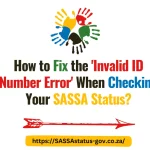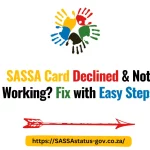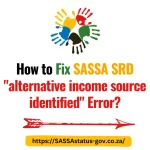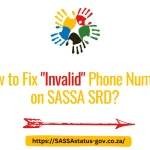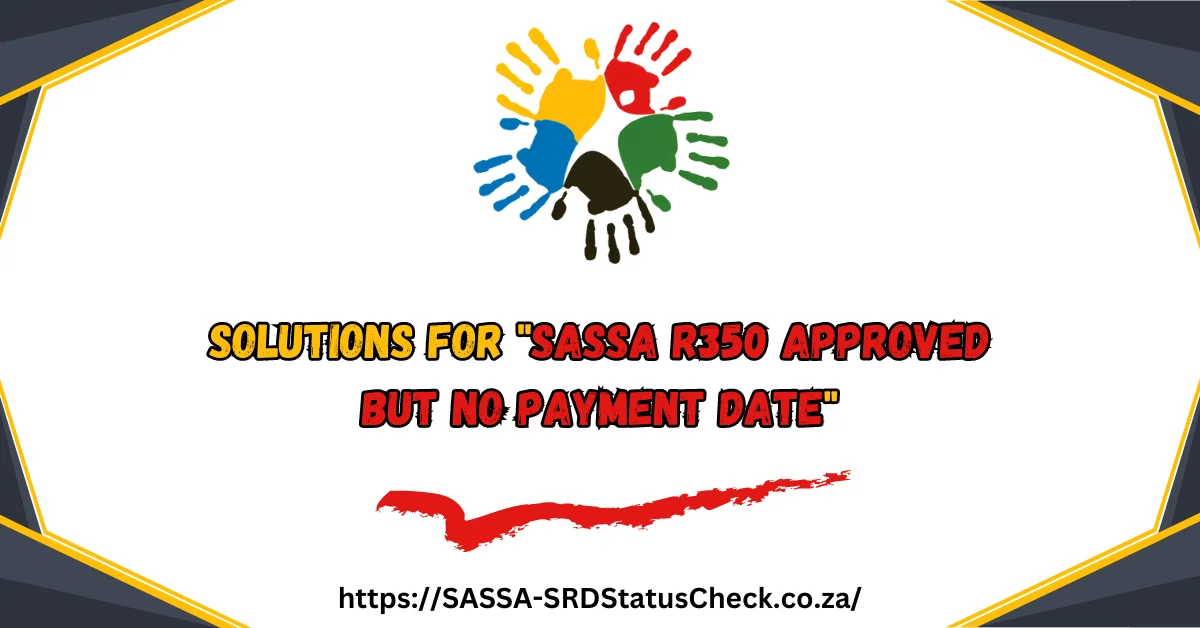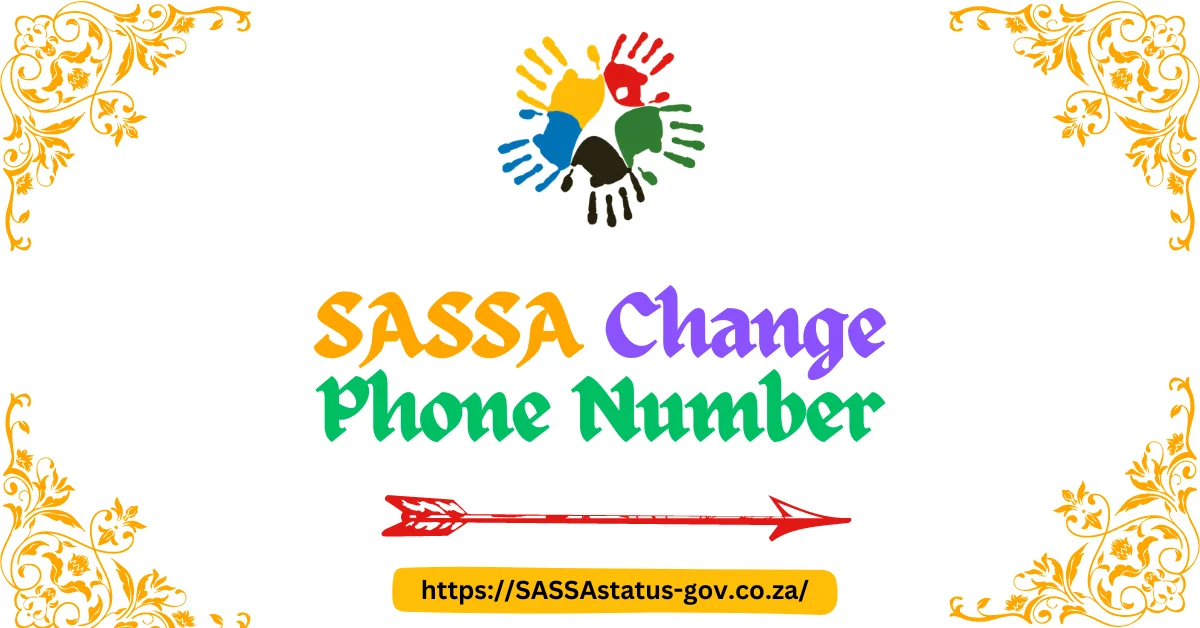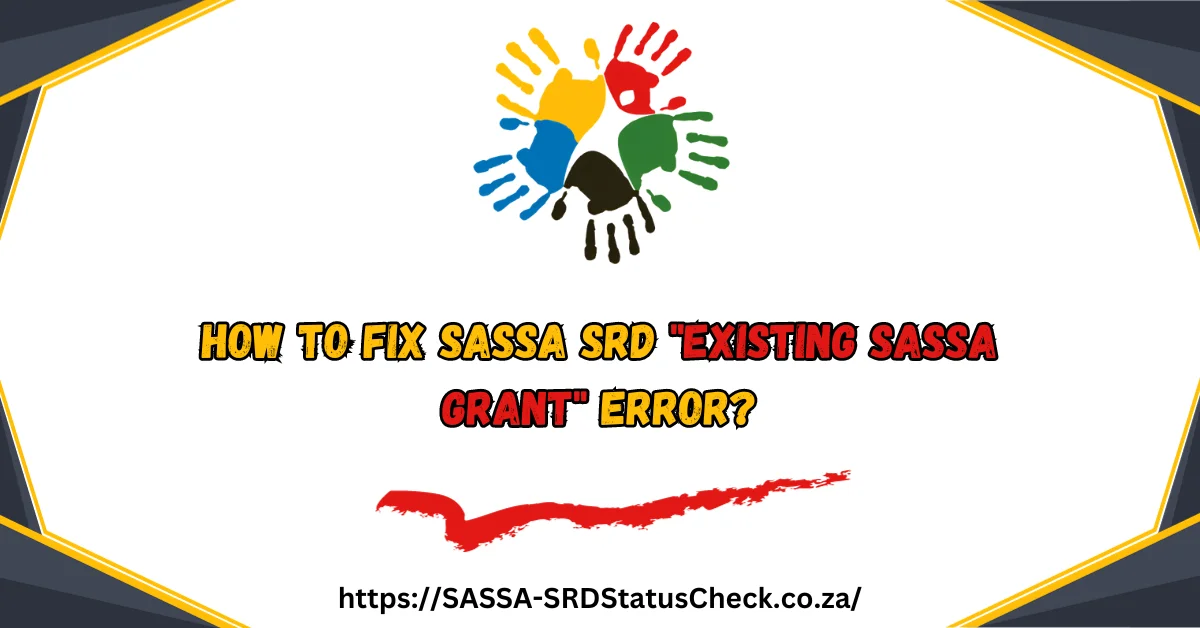Have you checked your SASSA application status in 2024 only to be met with a failed result? You’re not alone. Many South Africans rely on SASSA (South African Social Security Agency) grants for crucial financial support, and it can be frustrating when your application doesn’t go through.
If your application has failed, don’t worry this doesn’t necessarily mean you’re out of options. Let’s walk through what it means when your SASSA status fails, why it happens, and the steps you can take to fix it.
What Does Failed SASSA Status Mean? (Quick Answer)
A Failed SASSA Status means the South African Social Security Agency couldn’t match your information with Home Affairs. Common causes include mismatched ID numbers, incorrect bank details, or unmatched personal information in their database.
To fix this:
- Contact SASSA at 0800 60 10 11 for help
- Double-check your ID number and personal details
- Verify your banking information
- Ensure all details match your official documents
What Does a SASSA Failed Status Mean?
When you see a “failed” status on your SASSA application, it means there was an issue with processing your application. This could be due to a number of reasons, but the key takeaway is that the system could not verify or approve your details as submitted. A failed status means:
- Your application details couldn’t be successfully verified.
- The application was either rejected or temporarily suspended.
- Funds cannot be released because the application didn’t pass SASSA’s approval process.
But don’t worry just yet this doesn’t necessarily mean you’re not eligible for a grant. Often, there’s a way to fix the problem and reapply.
Common Reasons for a SASSA Failed Status
Several common issues can trigger a failed status on your SASSA application:
- Incorrect Details: Your personal or grant information may not match SASSA’s records.
- Incomplete Information: Missing documents or required information.
- Income Limit Exceeded: You might have surpassed the income threshold for the grant.
- ID Mismatch: Your ID number may not match the records from the Department of Home Affairs.
- Duplicate Applications: Applying for more than one grant can cause confusion.
- Missed Appointments: Failing to attend scheduled appointments can cause your application to fail.
- Technical Glitches: Sometimes a simple system error could cause your application to fail.
- Fraud Detection: If your application triggered any fraud alerts, it may have been flagged for further investigation.
- Grant Status Change: Changes in your current grant status (e.g., suspension or cancellation).
Once you figure out why your status failed, you can take steps to address the issue and try again.
How a Failed Status Differs from Rejected Status?
It’s important to note that a “failed” status is different from a “rejected” status. While both indicate a problem, there’s a significant difference:
- Failed: Your application couldn’t be processed due to missing or incorrect information, but this can often be corrected, allowing you to reapply.
- Rejected: Your application was fully processed but didn’t meet the necessary requirements. Rejected applications usually have fewer chances for correction.
A failed status generally offers more flexibility for fixing the issues and resubmitting your application.
Step-by-Step Guide to Resolving a Failed SASSA Status
So, your SASSA status has failed now what? Follow these steps to troubleshoot and hopefully fix the problem:
Step 1: Identify the Cause
The first step is to understand why your application failed. You can do this by reviewing any messages or details provided by SASSA. If the reason is unclear, contact SASSA directly to get clarification on what went wrong.
Step 2: Gather Required Documents
Once you’ve identified the cause of the failure, gather any missing documents or information. For example, if your ID details were incorrect, make sure you have the correct verified ID document ready. If you missed an appointment, reschedule it as soon as possible.
Step 3: Submit Corrections
Now, submit your corrections:
- Online Applications: Log back into your SASSA profile, correct the errors, and resubmit your application.
- Paper Applications: If you applied in person, submit the updated forms to the nearest SASSA office or mail them.
Make sure that all your information is accurate this time around.
Step 4: Follow Up
After submitting your corrected application, keep a close eye on the status. Regularly check the status on SASSA’s website or follow up with the support team. If the status still fails, there might be additional issues to address, but don’t give up.
Can You Appeal a Failed Status?
If you’ve tried resubmitting your application and it still shows as failed, you might be able to file an appeal. Here’s how:
- Gather all the information related to your application, including any documents you’ve already submitted.
- Write an appeal letter explaining your situation, the efforts you’ve made to correct the issue, and why you believe your application should be reconsidered.
- Submit your appeal to SASSA and ask for formal reconsideration.
An appeal isn’t always a guaranteed solution, but it’s worth trying if you feel your application was unfairly rejected.
Who Can You Contact for Help?
If you’re feeling stuck and don’t know how to fix the issue, don’t hesitate to reach out for help. Here are some resources:
- SASSA Helpline: Call the national support line at 0800 60 10 11.
- Regional SASSA Offices: Visit or email your nearest office for assistance from a caseworker.
- Legal Aid Clinics: Some non-profit organizations offer free legal help for grant applicants.
- Private Lawyers: If you’re able to, you can consult a private lawyer to review your case. Fees typically range between R300 and R500 per hour.
These professionals can guide you through the process and help you avoid further issues.
Contesting Common Reasons for Application Failure
If you know why your application failed, here are some common issues and how to resolve them:
- Incorrect Details: Provide proof of your correct details, such as ID documents, birth certificates, or utility bills.
- Incomplete Information: Submit any missing forms or documents that were requested.
- Income Test Failure: If you think you still qualify for the grant based on your income, submit detailed financial statements to prove your case.
- Missed Appointments: Explain why you missed your appointment (e.g., illness or lack of transport) and reschedule as soon as possible.
Providing as much evidence as you can increases your chances of successfully resolving your application issues.
Tips for Avoiding a Failed Status in the Future
If you need to reapply for a SASSA grant, here are some tips to help you avoid a failed status next time:
- Complete Every Section: Make sure your application is fully completed and all documents are attached.
- Double-Check Your Details: Verify that your personal information matches your supporting documents.
- Stay in Touch: Keep your contact information updated in case SASSA needs to reach you.
- Attend Appointments: If you have an appointment scheduled, make sure to attend or reschedule if necessary.
- Follow Instructions: Read all instructions carefully and ask for help if anything is unclear.
By taking these precautions, you can reduce the likelihood of your application failing again.
What to Do If Your Grant Was Suspended or Canceled?
If your SASSA grant was canceled or suspended, causing your application to fail, here’s what you should do:
- Call SASSA: Find out exactly why your grant was suspended.
- File for Reconsideration: If you believe the cancellation was a mistake, request mandatory reconsideration.
- Submit an Appeal: If your reconsideration is denied, you can still file a formal appeal.
Don’t let a suspension or cancellation stop you from getting the support you need. Be proactive in resolving the issue.
Reporting Discrimination or Unfair Treatment
If you believe discrimination or unfair treatment led to your application failing, you have the right to report it. Here’s how:
- SASSA Complaints Handling Office: You can report any issues directly to SASSA.
- The SA Human Rights Commission (SAHRC): The SAHRC handles complaints related to discrimination.
- The Equality Court: This court deals with cases of discrimination and unfair treatment.
It’s important to stand up for your rights if you feel you’ve been treated unfairly.
Exploring Alternative Support While You Wait
If your SASSA application is taking longer than expected, you may need to seek temporary support. Here are some options:
- Local Charities: Many local charities provide food, housing, and other resources.
- Religious Organizations: Churches, mosques, and temples often offer emergency relief.
- Community Groups: Consider joining stokvels (savings clubs) or community support networks for help.
While these options are temporary, they can provide a lifeline while you’re waiting for your grant.
Avoid Scams Targeting SASSA Applicants
Unfortunately, scammers often target vulnerable SASSA applicants. Watch out for these red flags:
- Fees for Fast-Tracking: SASSA doesn’t charge for speeding up applications – anyone who asks for money is likely scamming you.
- Consultants Offering Guarantees: Be wary of anyone offering guaranteed approval for a fee.
- Loan Sharks: Desperation can make you vulnerable to predatory lenders. Stay cautious and avoid high-interest loans.
Always use official SASSA channels to avoid scams.
Steps to Take if Your Application is Stuck in Pending
If your application is stuck in “pending” status for more than 8 weeks, here’s what to do:
- Call SASSA: Get an update on your application status.
- Visit a SASSA Office: Sometimes, an in-person visit can help move things along.
- Escalate the Issue: If SASSA can’t resolve the issue, ask to escalate the case to a higher authority.
Be persistent but polite – showing patience and following up regularly is key to resolving your pending status.
Conclusion
A failed SASSA status in 2024 doesn’t have to be the end of your grant application journey. With a bit of patience, persistence, and the right information, you can troubleshoot the issue, correct your application, and get the support you need. Whether it’s submitting missing documents, appealing a decision, or reaching out for help, there are steps you can take to move forward. Don’t give up!

I’m Anele Zulu, a South African social worker dedicated to serving my country’s most vulnerable. With my degree and field expertise, I empower underprivileged communities through compassionate support and tireless advocacy on this website. My goal is simplifying access to services so families can uplift themselves
Contents
- 1 What Does Failed SASSA Status Mean? (Quick Answer)
- 2 What Does a SASSA Failed Status Mean?
- 3 Common Reasons for a SASSA Failed Status
- 4 How a Failed Status Differs from Rejected Status?
- 5 Step-by-Step Guide to Resolving a Failed SASSA Status
- 6 Can You Appeal a Failed Status?
- 7 Who Can You Contact for Help?
- 8 Contesting Common Reasons for Application Failure
- 9 Tips for Avoiding a Failed Status in the Future
- 10 What to Do If Your Grant Was Suspended or Canceled?
- 11 Reporting Discrimination or Unfair Treatment
- 12 Exploring Alternative Support While You Wait
- 13 Avoid Scams Targeting SASSA Applicants
- 14 Steps to Take if Your Application is Stuck in Pending
- 15 Conclusion

![SASSA Status Check Failed [Solved] (1)](https://sassastatus-gov.co.za/wp-content/uploads/2024/05/SASSA-Status-Check-Failed-Solved-1-1024x536.webp)
